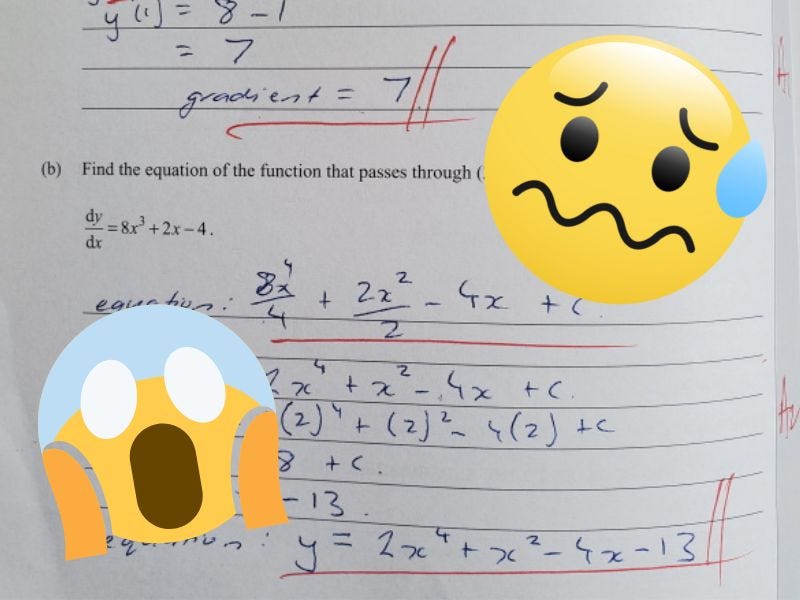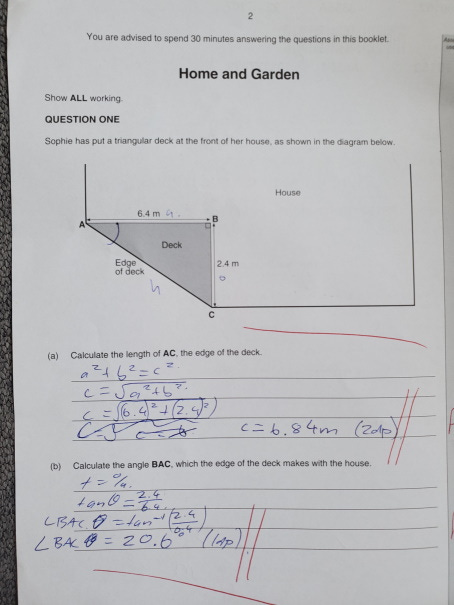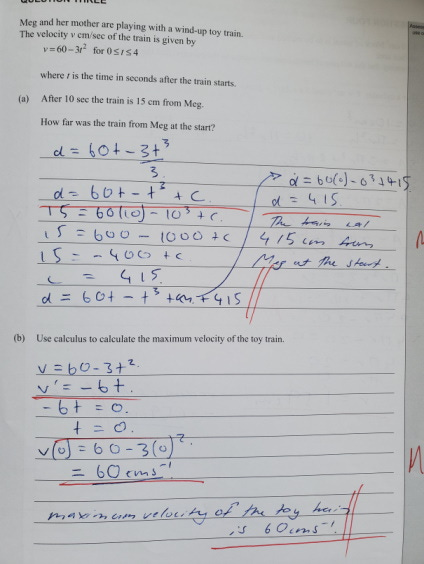How to help your teen actually pass Maths this year
Your teen hates Maths and just wants to pass — what can you do to help them get across the line?
Today’s mission is simple: I want to give your teen a strategy for passing Maths this year.
In an ideal world I would do my best to convince your teen that Maths is an amazing subject that teaches them the language of science; that Maths is the subject that has enabled human-kind to explore space, send submarines to the lowest depths of the ocean; to create life-saving medicines. (If you think I’d have any luck along those lines let me know and maybe I will try it sometime!)
But for now, I am going to assume that your teen is really struggling with Maths and that all they want is some help to make sure that they actually pass.
To that end, this post is all about how to get ready for a Maths exam when the goal is to pass.
Making Maths easier: rules
Does your teen feel like they have been dropped in a foreign country where they don’t speak the language when they’re in Maths class?
Well, that’s understandable if they’re struggling, because Maths is a language. But it’s a language that your teen needs to at least grasp the basics of if they are going to pass.
Onto the good news. Being the purest science, Maths is based on rules. Black and white rules that do not change (at least at high school level).
During exam study, your teen’s task is to learn the rules.
They need to make a list (on paper is best) of every topic likely to come up in the exam (e.g. Trigonometry, Geometry, Algebra and all of the subtopics that sit underneath each one), and make sure they know the rules for each one.
For instance, the rules for figuring out the angles in a right-angled triangle (Pythagoras Theorem), or the rules for solving an algebraic equation (i.e. figuring out what x is).
Regardless of the exact questions that come up in the exam, the great thing about Maths is that the answer to every question will be solvable using the rules your teen has learnt in class.
This is why some teens actually like Maths. It’s completely predictable and objective. You either know the rules or you don’t. You either get the right answer or you don’t. There’s really no subjectivity like there is in essay-based subjects.
Exam study — learning the rules
When your teen is in their Maths exam, it’s too late for them to be trying to figure things out. They won’t have time.
This is why during exam study your teen needs to practice each type of Maths question likely to come up in the exam, to the point that they can answer questions relatively easily.
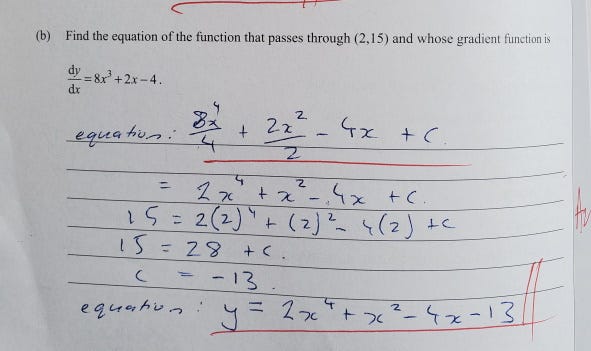
In other words, they need to learn the rules for each type of Maths problem they need to know, and practice answering questions until they can do it without wanting to hit their head against a wall.
Repetition is the key.
The prospect of answering question after question over and over again probably won’t fill your teen with joy. In this case you might find deploying some incentives helpful. An incentive does not need to be anything flashy in the slightest; simple things like having a study break after answering 10 practice questions might be all that is needed.
Relatedly, starting study sessions with a plan is the key to productivity and concentration. A simple plan like, 20 practice questions; 10 for 2 different topics, can make a world of difference. Without a plan, your teen might feel overwhelmed by everything they need to study and give up before they have even started.
Maximising marks in the exam
How your teen goes about answering the exam paper is just as important as the study they do leading up to the exam.
I can’t stress this enough.
Too many teens throw away precious, precious marks because even though they might have a solid grasp on a subject, they botch the exam itself. This can be due to time pressure, or a curly question being thrown at them, or not being prepared for the format of the exam.
I want your teen to avoid this situation at all costs. Even if they’re never going to study Maths at MIT, there is no reason why they can’t at least pass their Maths exam.
So here are my quick-fire suggestions to make sure your teen tackles their Maths exam with a strategy that will make sure they maximise their chances of answering every question they are capable of answering:
1. Answer easier questions first
The questions in a Maths exam often increase in hardness as they go. Easier questions first, followed by medium questions, and then the hard ones later on.
I suggest your teen answers the easy questions first. These will be the questions that don’t require them to read a complicated word problem.
The idea is that your teen scoops up all of the easy marks they can, and then if there is time they can go back and have a crack at harder questions after.
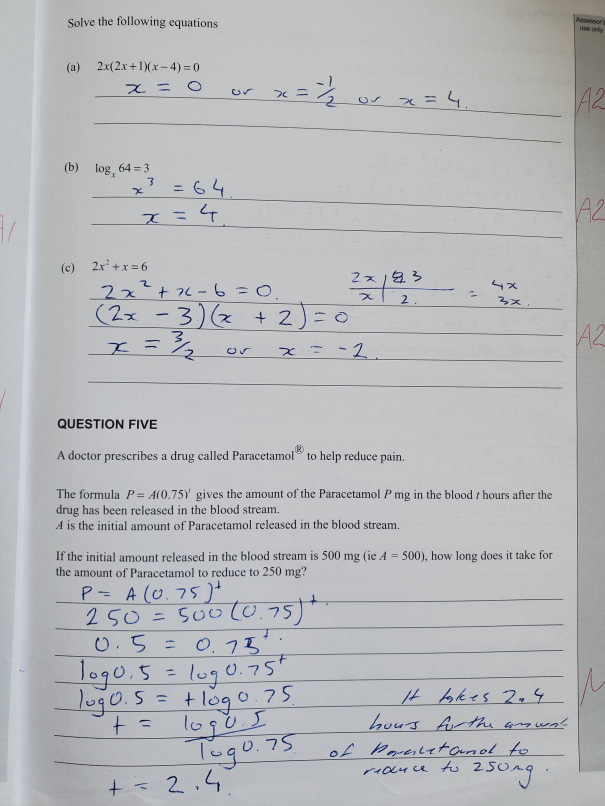
What we want your teen to avoid doing at all costs is wasting time trying to answer hard questions that are out of their reach only to run out of time and not answer easier questions they could have answered. This is worst case scenario really, because it means your teen’s grade will not reflect their ability.
I know from experience it can be hard to move on from a hard question — part of you wants to try and figure it out — but a big part of doing well in an exam is having an exam strategy that you stick to, and doing as much as you can in the limited amount of time available.
If a question is too hard, your teen needs to move on to an easier question. They can always come back to harder questions if they have time.
2. Set out work clearly
Have a look at the picture below taken from one of my real Maths exam papers. See how each step starts on a new line?
I strongly suggest your teen uses their exam study time to get used to setting out their work clearly.
This requires a new line for each step, for a few very good reasons: It will help cement the steps of each type of problem in your teen’s memory, make their answers easy for the examiner to mark, and reduce the chances of making silly mistakes. For me this is an absolute must for getting the hang of Maths.
3. Check the decimal place and the units
Silly little mistakes can cost your teen in an exam. This is especially the case with word questions, where your teen will need to give an answer that fits with the context of the question (e.g. how many kilometres does Clare walk before she reaches the beach — the answer will need to have “km” at the end).
So there we have it. A simple way forward for giving your teen the best possible chance of passing their Maths exam.
Let’s recap the 3 key takeaways:
In one sense Maths is actually an easy subject made up of rules; rules that your teen can learn.
During their exam study, your teen needs to learn the rules for each type of problem they need to know how to solve, and practice answering questions until they become relatively easy.
In the actual exam, your teen needs to prioritise easier questions to ensure they scoop up as many marks as possible.
I hope this breakdown of high school’s most hated subject gives your teen a path to follow from now until their Maths exam. I honestly believe any teen can at least pass Maths if they have the right approach.
How’s your teen going with Maths? Do they hate it with the fire of a thousand suns? Is there a part of Maths in particular they’re struggling with? Let us know in the comments — we’re all here to help each other.
Wishing your teen all the best,
Clare
P.S. For more detail about how to tackle different types of Maths questions check out this previous post.



